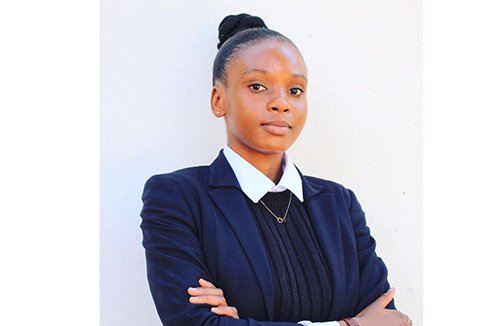Women who fall pregnant at a young age do not just have to deal with the stigma but also have to overcome the anxiety of their life changing situation.
“I naively walked into the clinic with a complaint of missed periods for about two months, it did not even cross my mind for a second that I might be pregnant,” Helena Johannes confided in Vital Signs.
Her worst fear was confirmed and the nurse did several tests which included a pregnancy test.
At the age of 18 then, Johannes’ pregnancy would be one of her worst experiences as it included endless judgments and bashing from the community.
“After I heard “this shows you are pregnant”, I went into a silent panic attack, and even though I was told to go to the antenatal care room, I ignored it because I was in disbelief and took a taxi home,” shared Johannes.
In the taxi, the self-blame started in her mind. She started thinking of how to break the news to her family.
She said: “What will I tell my family, how am I going to take care of the child? What if I get chased out of the house? How am I going to focus on my education? What will the society say? I was terrified, and anxious that I couldn’t even think of anyone to tell (family or friends). I kept all to myself instead.”
Even though she had the support of her family later, she was still in denial until she ended up at the gender ministry to seek psychological help. The public relations practitioner, like other Namibian women who find themselves in such situations, would cry herself to sleep due to society bashing, including healthcare givers.
Johannes said: “It is heartbreaking that some health professionals try to embarrass young girls when coming for check-ups as this leads to some quitting the prenatal visits and triggers the anxiety they might be already dealing with. It is vital that the necessary support is rendered to young mothers and clinics are made safe for them to seek help.”
“Equally, I experienced pregnancy complications, thus giving birth to a premature baby at about six months of pregnancy. This was one of the toughest moments of my life as I spent about five weeks in the hospital taking care of my incubated baby,” said Johannes.
Years later, the journalism graduate is nurturing her six-year-old and the biggest lesson life has taught her is everything happens for a reason and mistakes are part of life and it is key for one to avoid repeating them.
“Nonetheless, I am grateful for the life of my child. I dedicated my academic years to him and he is the reason I work hard every day to ensure that he is taken care of regardless,” she stated.
She is cautioning young girls to be aware and vigilant when it comes to engaging in sexual practices with their partners and for young men to play their part and be there for their expectant partners.
“It is also imperative for young boys to get involved in sex education as equally as girls. And men to be aware that their presence throughout a woman’s pregnancy and childbirth is of importance to one’s mental health,” she stated.
– psiririka@nepc.com.na


